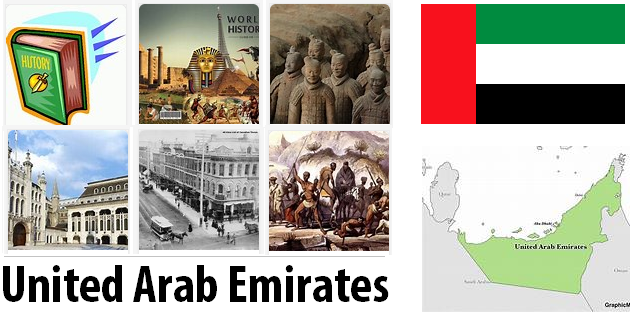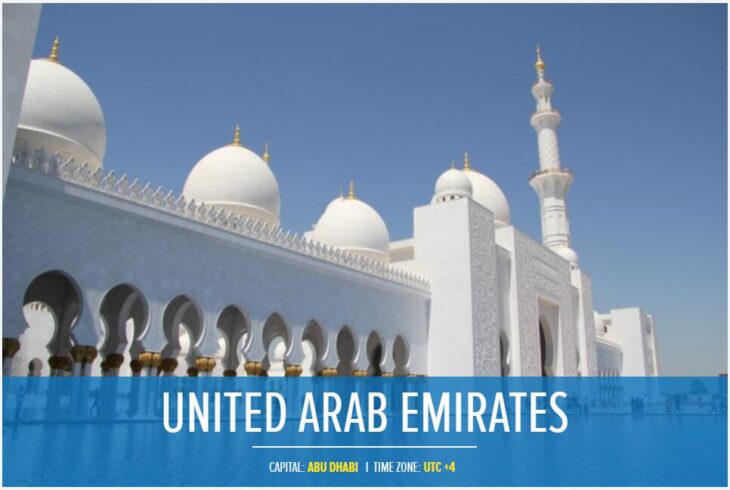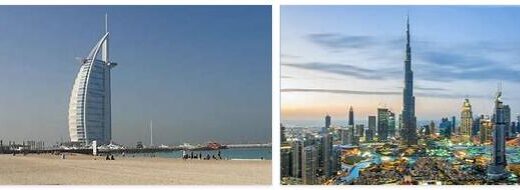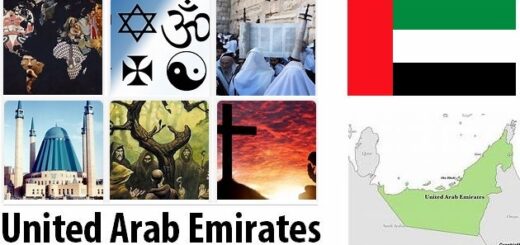United Arab Emirates Recent History
This name indicates seven emirates, also known as “States of the Truce”, and are: Abu Zabi, Dubai, Shargiah, Agman, Umm el-Quwein, Ra’s el-Kheimah and Fugiairah.
“States of the Truce” were said in memory of a truce, precisely, agreed between the British and the pirates who then wreaked havoc and robberies on the coasts of those countries.
According to Abbreviationfinder, an acronym site which also features history of United Arab Emirates, Britain in 1892 elected their protectorate over them, until 2 December 1971, when they proclaimed themselves “sovereign and independent state, an integral part of the Arab world”, with the name of Union of the United Arab Emirates.
The Union immediately joined both the Arab League and the United Nations.
There is a founding treaty between the seven emirates for which the Presidency of the Federation is held in turn.
The first president was Abu Zabi Sheikh Zaid Ibn Sultan Al Nuyan; but in December 1976 it was confirmed for another five years. He is assisted by a Supreme Council which meets at least twice a year to discuss problems of common interest. And in fact on February 13, 1972, the National Consultative Assembly met for the first time. Then in May 1973 the single currency was established: the Dirham.
The overwhelming wealth brought by the production of oil in these emirates has given rise to very large public works. The level of wealth reached by the highest social classes, however, has created enormous discrepancies, since the distribution has never touched the areas and internal populations that, therefore, live in poverty.
Industries and foreign trade are highly developed. And even if in the 80s wealth has undergone a slight slowdown, the emirates have always been placed in the first places of the world ranking.
With the advent of the Islamic revolution, especially in Iran, and with the Iraq-Iran conflict, the emirates established a greater coordination of relations with the Soviet Union. With the end of the conflict, economic plans always related to oil production resumed., which, however, suffered a new stasis at the time of the precipice of the crisis between the United States and Iraq following the invasion of Kuwait in the year 1990.
The emirates, directly involved in supporting Kuwait, were well satisfied with the American intervention in the Gulf War and subsequently, at the end of the war in 1991, they hoped for the prolongation of this presence in order to guarantee their safety especially from the preponderance of Iran, Which, in fact, in 1992 went to occupy the island of Abu Musa and two other islets in the Ormuz strait.
In 1996 Iran opened an airport on the island of Abu Musa and a pier the following year. The emirates first brought the issue to be discussed within the Gulf Cooperation Council, then to the Arab League and finally to the United Nations, which supported their theses. Then in 1998 relations between the two states improved and Tehran declared all his willingness to settle the controversy.
The emirates, however, despite all the treaties stipulated with various western states, did not authorize anyone to build military bases in the territories under their jurisdiction.
Political parties were never founded within the emirates and each of them is sovereign in its territory.
In 1994, by mutual agreement, they brought a variant to the traditional judicial system, subtracting some major crimes, such as murder, theft, adultery, trafficking and consumption of narcotic substances, to subject them directly to the justice of the “Saria”, that is, to the Islamic judgment.
In 1996 there was still a variant on traditional laws, especially those on immigration. This was to stem the influx of foreign labor which, contrary to what happened in the seventies, when it was in great demand, was now no longer so necessary, indeed it created some problems too many.
In that year the emirates also decided to make permanent the Constitution that had been passed since 1971.



